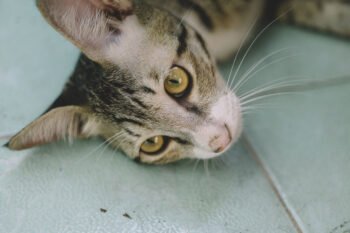Cats are funny creatures, not known for showing their feelings or emotions, which can make it difficult for caring pet owners to tell if their cat isn’t feeling well. Here are some signs and symptoms to look out for to determine if your cat is indeed sick and at what point you should see a veterinarian
Signs Your Cat Might be Sick
If you notice any changes in your cat’s normal routine or behavior. Any abrupt change that lasts for more than a few days may be an indicator of a more serious issue. Watch out for the following changes:
- Loss of Appetite:One of the biggest indicators of illness in cat? A change in appetite. A decrease in appetite could be caused by infection or liver disease, according to Newfield. If your cat is eating well but losing weight, you’ll want to watch out for that too. It can be a sign of early diabetes, hyperthyroidism or even cancers of the
- Changes in Attitude or Behavior: if your older cat starts acting spunkier, don’t rejoice too quickly, as over-active behavior might be a sign of hyperthyroidism, Newfield said. Additionally, if your cat is suddenly fearful, overly timid or rough, or you notice any major change in behavior, those also can be signs of a problem,
- Decreased Movement: although many cat owners will attribute a decrease in activity to old age, it can actually be a sign of arthritis or other ailments. If your cat is not jumping up on counters or running around after a toy like she used to, she may be experiencing joint pain.
- Changes in Grooming Habits: if your cat suddenly stops grooming herself, take note, as an unkempt coat and poor grooming habits can be indicative of thyroid disease or a sign of poor health. You’ll also want to look for excessive itching or licking in addition to shedding or hair loss, according to
- the Integrative Veterinary Care Journal. A dry, oily or lack-luster coat also can be a sign of larger issue.
- Unusual Bowel Movements: Large or more frequent stools can be a sign of an internal disease or issue. Bloody stools should also be addressed immediately.
- Increased Hairballs or Vomit: unless the hairballs your cat coughed up are comprised completely of hair, chances are high that your cat actually vomited. Vomiting repeatedly can mean your cat has heartworm or other ailments.
If you aren't sure, don't take a chance. The worse thing that could happen if it turns out there is nothing wrong with your cat is a unnecessary trip to the Vet.







